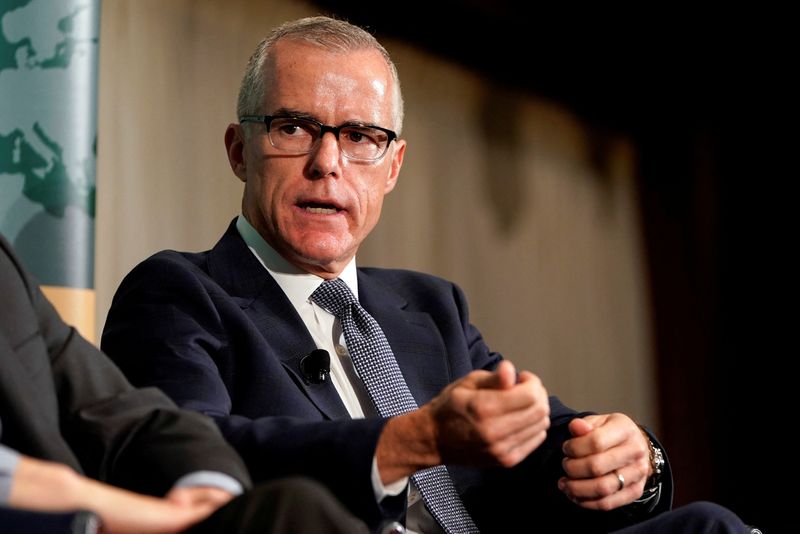By David Lawder
WASHINGTON (Reuters) - U.S. Internal Revenue Service Commissioner Charles Rettig asked the Treasury Department's internal watchdog to investigate how two former FBI officials vilified by former President Donald Trump were selected for intensive tax audits, the IRS said on Thursday.
The announcement came after the New York Times reported that former FBI director James Comey, who was fired in 2017 by Trump, was selected for an extremely rare type of tax audit for his 2017 taxes, and that former deputy FBI director Andrew McCabe was selected for an audit of his 2019 taxes.
Both men were frequent targets of criticism by Trump over their roles in the FBI's investigation into the Trump campaign's alleged connections with Russia in 2016. Comey was fired in 2017, while McCabe was dismissed in 2018, and later wrote a memoir decrying Trump's "relentless attacks" on the agency.
Rettig, who was appointed by Trump in 2018 and retained by President Joe Biden, referred the matter to Treasury Inspector General for Tax Administration "after receiving a press inquiry," the IRS said in an emailed statement.
The New York Times report https://www.nytimes.com/2022/07/06/us/politics/comey-mccabe-irs-audits.html included redacted images of letters received by Comey and McCabe stating that their returns were selected "at random for a compliance research examination." Comey was informed of his 2017 tax year audit in 2019, while McCabe was notified of his audit in 2021.

Some tax professionals refer to such National Research Program examinations as "audits from Hell" because they require complete documentation of every line of income, business expenses, deductions and credits. Only a few thousand self-employed and small business taxpayers are selected each year from more than 150 million individual returns to collect information on compliance.
"Audits are handled by career civil servants, and the IRS has strong safeguards in place to protect the exam process – and against politically motivated audits," the IRS said. "It’s ludicrous and untrue to suggest that senior IRS officials somehow targeted specific individuals for National Research Program audits."